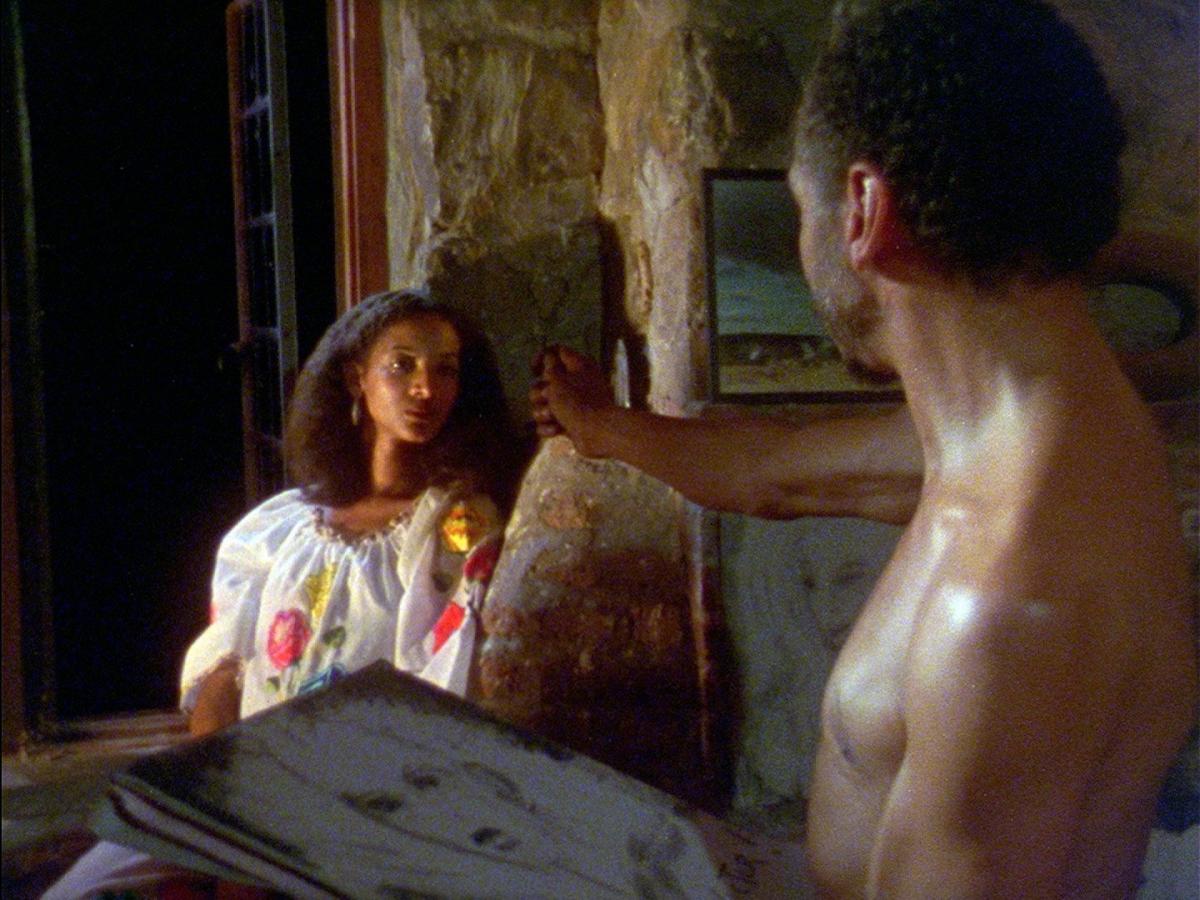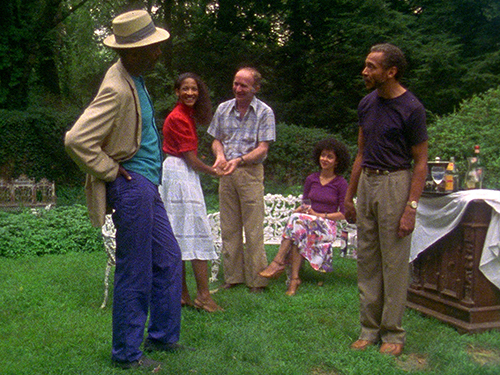On 3 June 2021, Sabzian and Courtisane are hosting the ninth Milestones screening online, presenting Losing Ground (Kathleen Collins, 1982). Characterized by Collins (1942-1988) as a comic drama about a young woman who takes herself too seriously, Losing Ground was one of the first feature films by an independent African-American woman filmmaker. Her protagonist – played by longtime collaborator Seret Scott in a role based on Collins’s own experiences – is a professor of philosophy who tries to examine “ecstasy” from a purely rational perspective, while her artist-husband (Bill Gunn) finds it more interesting to pursue ecstasy. A rare breed, Sara is immersed in Western philosophy, but ironically the limitations of her life are illuminated by her involvement in black folk culture. She “becomes” Frankie in a student film (within the film) based on the folk song Frankie and Johnny. Highly influenced by the work of Eric Rohmer, whom she described as “the only person who’s ever influenced me cinematically”, Losing Ground is a witty, perceptive study of the emotional awakening of a woman in a troubled marriage. At the time of its release, the film was met with cold indifference from producers, distributors and critics, as it didn’t feature poverty, gangs or, as cinematographer Ronald K. Gray put it, “poor suffering black folk.” Rediscovered, restored, and finally released to much acclaim in 2015, Losing Ground now “feels like news, like a bulletin from a vital and as-yet-unexplored dimension of reality” (A. O. Scott, The New York Times).
Born in 1942, raised in Jersey City, and educated at Skidmore and the Sorbonne, Kathleen Collins was an activist with SNCC during the Civil Rights Movement who went on to carve out a career for herself as a playwright and filmmaker, during a time when black women were rarely seen in those roles. She was married twice and had two children, who she raised in Piermont, New York. She died young, at age 46, from breast cancer. Her most known work is the film Losing Ground from 1982, which went largely unseen for more than thirty years before being released in 2015. Two never-before released collections of her writings, Whatever Happened to Interracial Love? and Notes from a Black Woman's Diary were published in 2016 and 2019, to much acclaim.
On 2 June 2021, Sabzian will publish a Dossier on Losing Ground to mark the occasion of the online screening. On the evening of the screening, 3 June, an introduction to the film by Stoffel Debuysere will be posted on Sabzian. The presentation of Losing Ground is part of a series of five Milestones screenings hosted online by Sabzian, of which four are in collaboration with Courtisane. The film and introduction will be available on Sabzian’s home page on the day itself.

Milestones is a series of stand-alone screenings, hosted by Sabzian, of film-history milestones, reference works or landmarks, films that focus on aesthetic or political issues and stimulate debate and reflection. In earlier instalments, Sabzian presented Andy Warhol’s Sleep (1964), Jean-Luc Godard’s monumental video work Histoire(s) du cinéma (1988-1998), Robert Kramer’s Milestones (1974), Jean-Daniel Pollet’s Méditerranée (1963) and L’ordre (1973), Shadi Abdel Salam’s Al-mummia (1969), Georges Rouquier’s Farrebique ou les quatres saisons (1946), Michel Khleifi’s Fertile Memory (1980), and Harun Farocki’s Bilder der Welt (1989). For each screening, Sabzian publishes texts that contextualize the film.
With the support of the Flemish government



